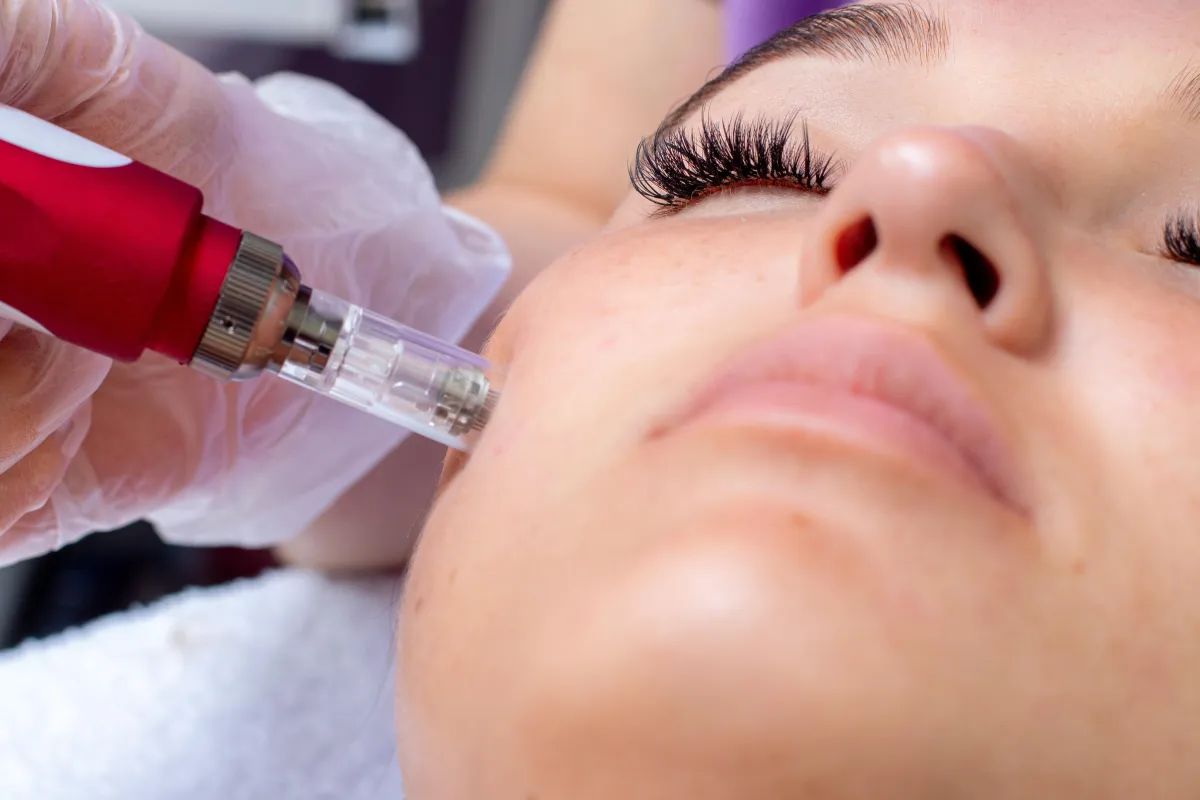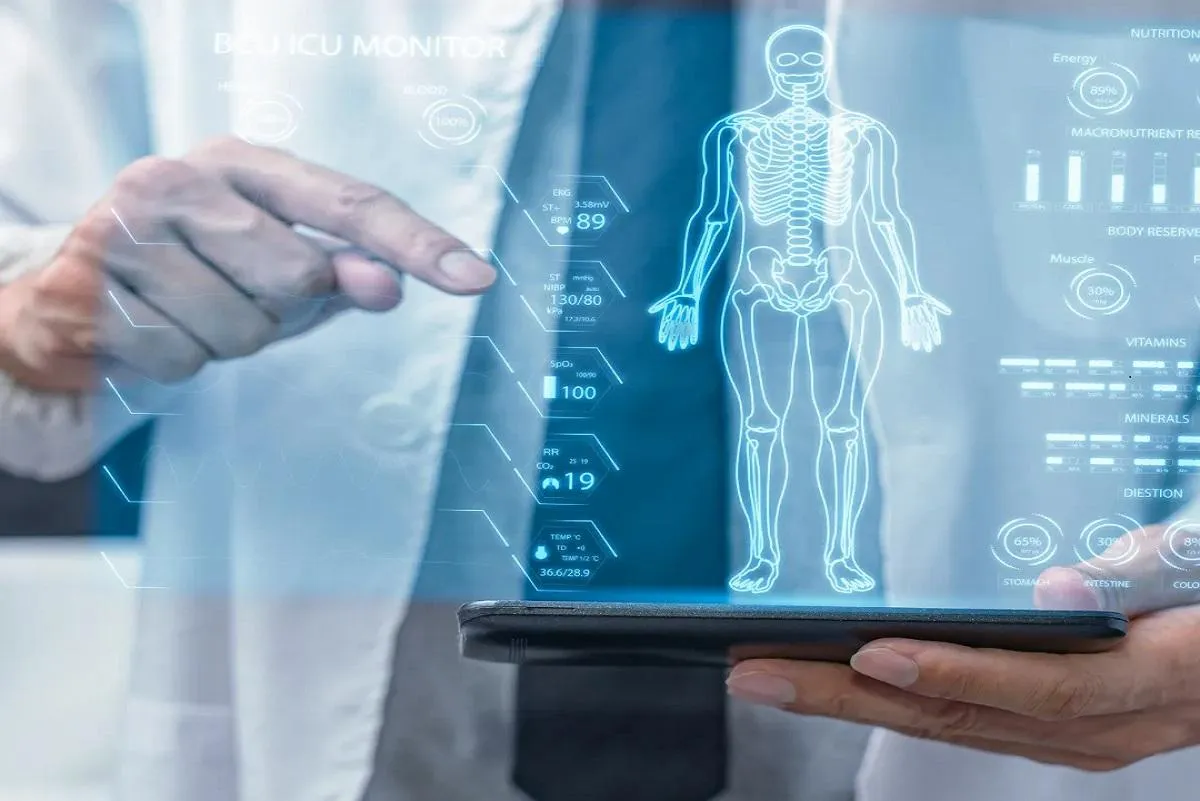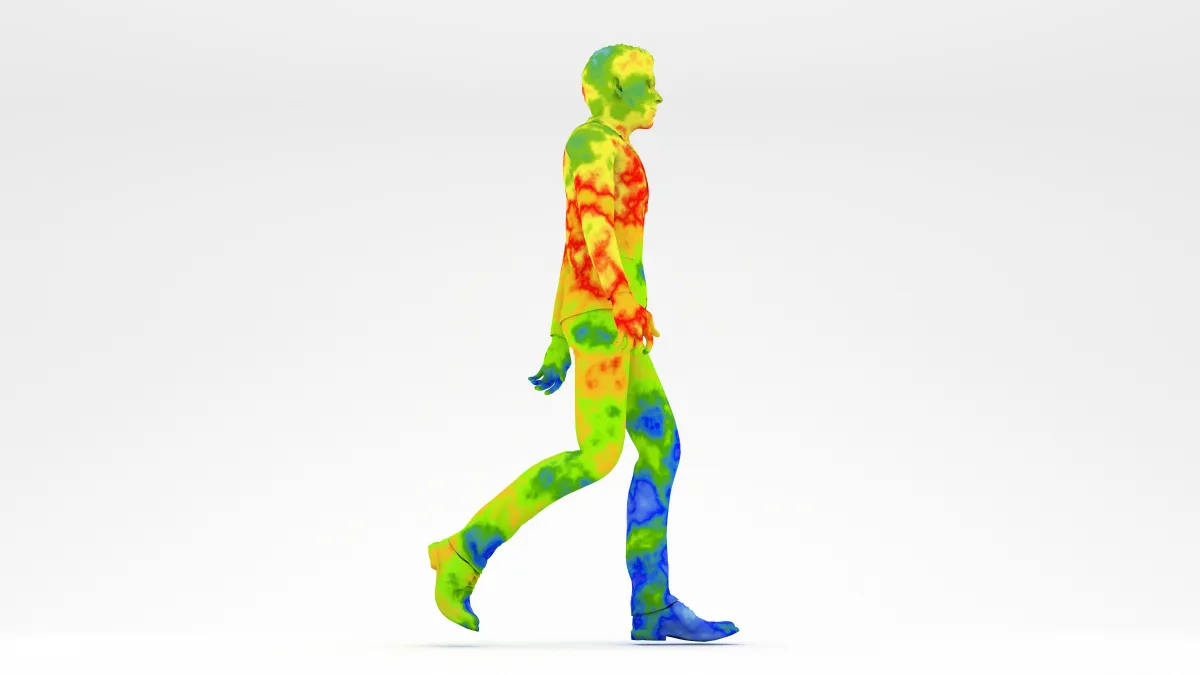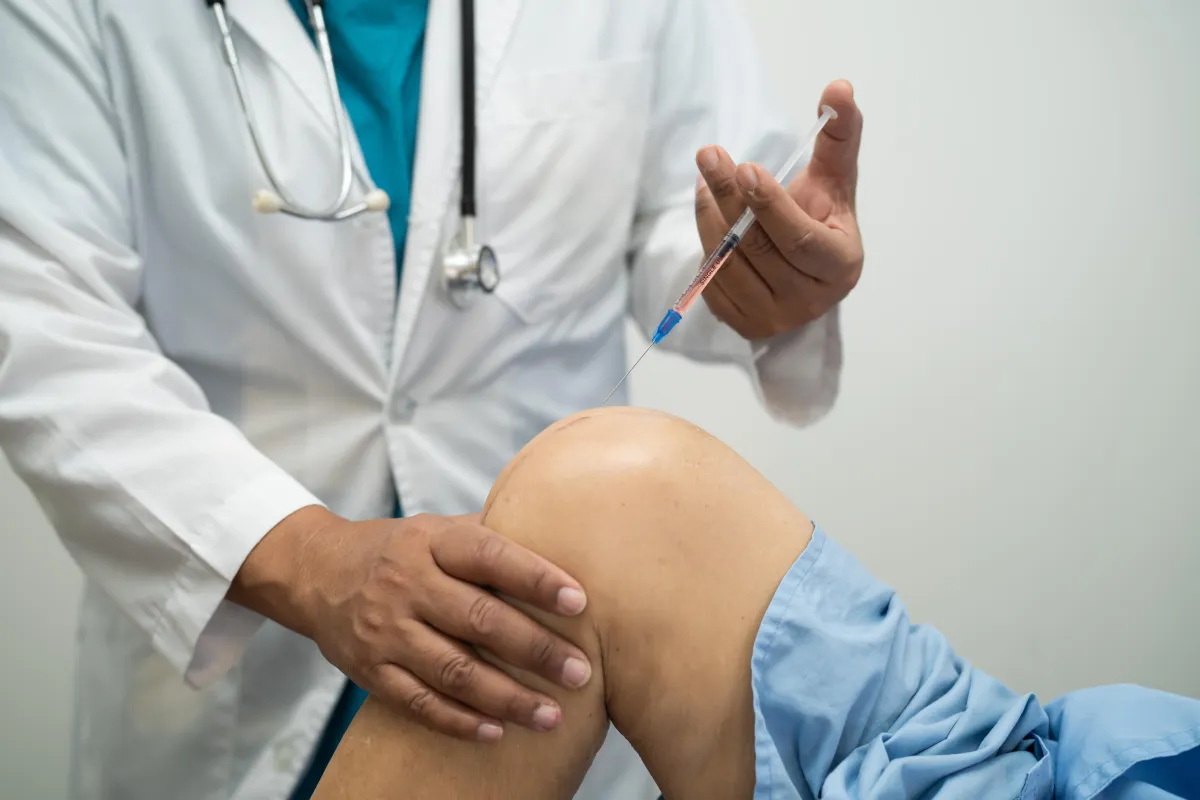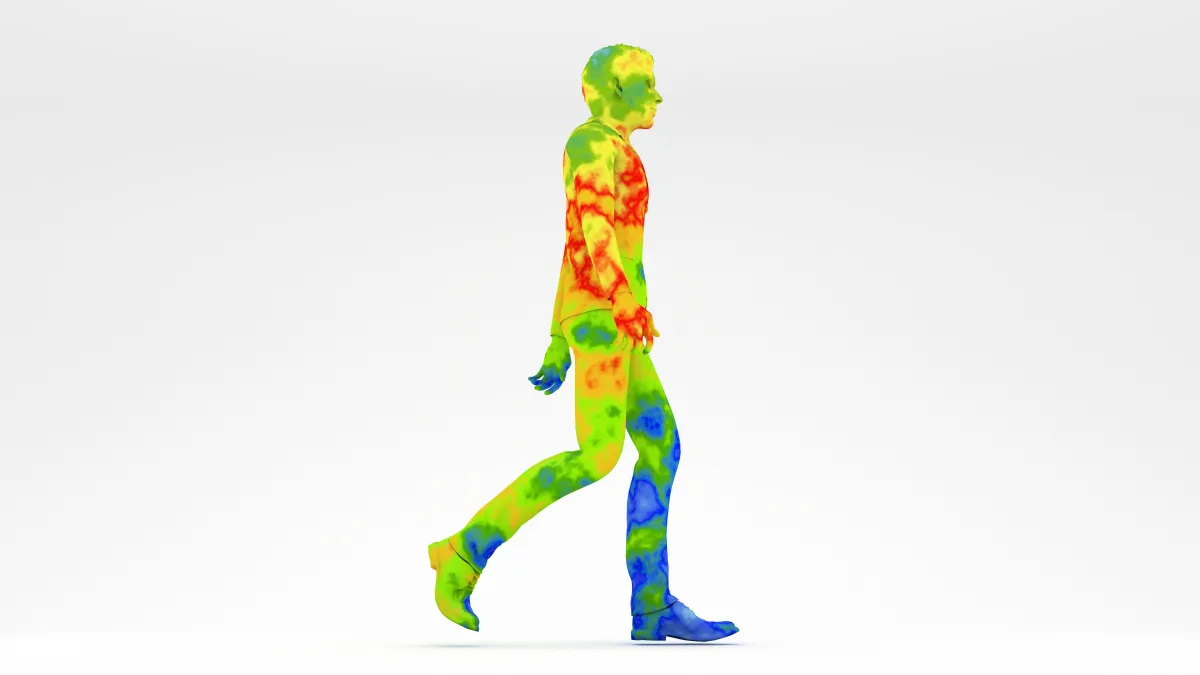Welcome to the Chambers Clinic Blog

“Leaky Gut” and the Confusion of Food Allergies and Sensitivities
Believe it or not, food allergies are rare. Studies estimate these to affect less than 10% of the population. But twice as many American adults report “food allergies” and they seem to come up all the time in the news.
Often what people are really experiencing are food sensitivities. Certain foods, usually at certain times, offend. These cause symptoms ranging from stomach aches to wheezing to headaches and joint pains.
Understanding the difference requires a quick understanding of common immunoglobulins, the antibodies that respond to invaders in our body.
IgM – These antibodies are like the marines. They are the first responder to any threatening invader to our system. They are general. Our body immediately sends them no matter what and then waits for back up. Often they get the job done before that even happens. Hoo rah.
IgG – While the IgM marines are fighting the first wave, they send a spy back to the immune system. This spy reports exact details of the invader, and our bodies make the exact opposite – terminators called IgG antibody. IgG antibodies are highly specific. They respond in 10-14 days to neutralize the threat. When the threat is over, IgG antibodies go back home and lay in wait for the invader to come back – known as a a reactivation. If you had the Influenza B in 2003, and you get it again in 2023, those flu antibodies respond immediately and get rid of it, often before we even feel sick. This is one of the ways we stay well. I’ll be back!
IgA – This is the native immune system that lines the inside the “pipe” – or mucosa -- of our intestines. If you ate some bacteria, say, on a street taco, that didn’t belong in our system, our body has a signaling system to the brain to say “get it out” (often a “flood”: vomit or diarrhea). IgA also responds and gets to work knocking it out.
IgE – These are the “allergies” everyone talks about when they say they’re allergic. Every sneeze when trees and flowers bloom in the spring? IgE. Ever get a bee sting? And a big red welt appears? IgE. What about a kid with a peanut allergy who situation becomes an emergency when her throat swells up? That’s IgE. That is a massive histamine response for which we give antihistamines – such as Benadryl (diphenhydramine).
So what do antibodies have in common with the gut? Or even a leaky gut?
First, a fun fact: the barrier of our gut is 1 cell width wide – that’s infinitesimally small! And strong! But is it an any wonder it can possibly leak?
Ok then, what is “leaky gut”?
Leaky gut, scientifically referred to as increased intestinal permeability, is a condition where the lining of the intestines open up more than normal, generally in response to prolonged inflammation.
This allows substances like toxins, undigested food particles, and bacteria to leak through the intestinal barrier and enter the bloodstream. In a healthy gut, the intestinal lining acts as a barrier, selectively allowing nutrients to pass into the bloodstream while preventing harmful substances from entering.
When the integrity of the gut barrier is compromised, various health issues can arise. These may include inflammation, autoimmune reactions, food sensitivities, joint pain and digestive problems. Some factors
that can contribute to leaky gut include chronic stress, poor diet, excessive alcohol consumption, certain medications, infections, and imbalances in the gut microbiota.
And what’s behind out gut? Toll Like Receptors (TLRs). These are essentially buckets of – what for it – histamines! This is the bodies last ditch response – a histamine response -- to degrade what’s leaking through to the bloodstream while sounding the alarm to the rest of the system that there’s an invader.
Leaky gut and histamine response are both related to your gut health and can have significant implications for overall well-being.
What is a histamine response?
As mentioned, histamine is a naturally occurring compound in the body that plays a role in the immune response, regulation of stomach acid, and neurotransmitter function. Histamine is also found in various foods and is released in response to allergies or inflammatory reactions (IgE!).
Some people can have a heightened sensitivity to histamine, and they may experience symptoms when exposed to foods or other triggers that release histamine.
Histamine intolerance – or more like, an overwhelm -- is a condition in which the body has difficulty breaking down histamine, leading to an excessive accumulation of histamine in the body. This can result in symptoms such as headaches, hives, digestive issues, nasal congestion, and more. Certain foods that are high in histamine or trigger the release of histamine (e.g., fermented foods, aged cheeses, alcohol) can exacerbate these symptoms in sensitive individuals.
Is there a leaky gut-histamine connection?
There is a potential connection between leaky gut and histamine intolerance. When the gut barrier is compromised and becomes leaky, it can allow larger molecules, including histamines from food and TLRs, to pass through into the bloodstream. This can contribute to an increased histamine load in the body, potentially exacerbating histamine intolerance symptoms in individuals who are already sensitive.
Moreover, certain compounds in the gut microbiota can influence histamine production and breakdown. Dysbiosis (imbalanced gut microbiota) or overgrowth of certain bacteria can lead to increased histamine production, adding to the overall histamine load in the body.
What about IgM and IgG?
Meanwhile, those food particles each cause an IgM – and ultimately – when the body has seen them before -- an IgG reaction.
So food can reactivate our immune system – a lot. A single meal can leak through many constituents or pieces of food. And then the immune system has to deal with a dozen “invaders” instead of say, one, if it were a food allergy. When stress continues to inflame our gut and the immune system has to deal with lots of invaders leaking through for a long time we experience symptoms such as stomach aches, increase gas, bloating, and often severe fatigue.
How do you know if you have a food allergy or food sensitivity?
We can test.
Western doctors often run to IgE allergy tests. And these are great for environmental allergies. (Ask us about SLIT testing!)
IgE tests also can inform food allergies. That said, someone with a food allergy who’s had to go to Urgent Care or ER KNOWS they have a food allergy and unfortunately, that is the “best” way that many find out. Absent that kind of response when it happens, few likely have food allergies. The test is then about simply knowing vs. actually diagnosing or healing something.
What has more utility for leaky gut is IgG AND IgA testing. Many practitioners – including many naturopaths -- only run IgG – the thought being that we can identify the foods that the body has seen before or is reacting to right this minute. The protocol is that we have the patient eliminate all the foods on the list for 6 weeks, allow the gut to heal from the absence of these offenders, then reintroduce them one by one, testing to see if they cause symptoms again.
What tests for a leaky gut?
First, we can also test for zonulin, the “rivets” or “elastic bands” that hold the gut together that comes apart when the gut “leaks”. We can gather from either blood or stool tests. Diagnostic but slightly less important.
I think that in addition to IgG, it also is critical to test IgA, the” inside the pipe” immune system. What’s upsetting that too? That – combined with IgG -- can help us pinpoint specific foods triggering our immune system. We can run a blood test with that combination.
HELP! Everything came up on my Food Sensitivity test! What am I supposed to eat?!
When a patient returns a long list of foods on an IgG/IgA, they’re not allergic or sensitive to them genetically or long term – they are sensitive right this minute – and probably not to most of those – only what’s recently leaked through and been responded to by the immune system.
For that reason, when we see “everything” come up on Food Sensitivity Panel, it’s almost always it’s leaky gut. (And we can always confirm with zonulin test).
We cannot eliminate ALL of those foods and reasonably and expect someone to have a robust, nutritious diet. Food restriction causes other downstream problems to our microflora – many important microbiota stop getting “fed” and die off, causing “dysbiosis” -- an upset of the harmony of the species in our gut microbiome.
We can group foods into categories (gluten, dairy, legumes etc) for elimination, thereby reducing the confusion and restriction.
And, we can identify the worst offenders since we have BOTH IgG and IgA irritation. We start there and proceed in a practical way that nourishes the body, heals gut inflammation, and enables the overactive immune system to stand down (giving us a much needed break from symptoms).
Now what? Where do I start?
Addressing leaky gut through dietary and lifestyle changes, along with proper medical guidance, may help reduce inflammation and improve gut barrier function, potentially alleviating histamine intolerance and other immune response symptoms. It's important to note that leaky gut can be a complex condition with individual variations, so consulting a naturopathic doctor with backgrounds in gut health and nutrition is advisable if you suspect you have these issues. The physicians at Chambers Clinic can provide personalized guidance and recommendations based on your specific situation.
Contact us today for more information.
Other Services
At Chamber's Clinic, we offer a variety of services to help you improve your health. We hope that you will give us a call to schedule an appointment and see how we can help you reach your health goals!
Some of our services include:
Is there a service that you are looking for that is not listed above? Book a call with us below to talk with us about your personal needs!
References and Articles
Extracellular vesicle-based therapy for amyotrophic lateral sclerosis
Amyotrophic lateral sclerosis (ALS) is a disease that causes the fast breakdown of motor neurons in the brain and spinal cord. These motor neurons are essential for controlling muscle movement, and their loss leads to disability. There are few treatments for ALS, so new methods to prevent further damage to motor neurons are urgently needed. One way to protect motor neurons could be by fixing the barrier between the blood and the central nervous system (CNS). This barrier helps to prevent harmful substances in the blood from entering the CNS and causing damage. In ALS, this barrier is not working properly, which may lead to the motor neuron damage.Researchers have found that certain cells from human bone marrow, called endothelial progenitor cells (hBM-EPCs), may help repair this barrier. These cells can release factors that help heal damaged cells in the barrier. Additionally, they produce small particles called extracellular vesicles (EVs) that carry helpful substances, which can further assist in fixing the damaged cells. In a laboratory study, these EVs were taken up by mouse brain cells, and the damage to these cells was significantly reduced. However, when a molecule called β1 integrin was blocked, the EVs could not be taken up by the cells. This research suggests that hBM-EPCs, and specifically the EVs they produce, may have potential as a new treatment for ALS by repairing the damaged blood-CNS-barrier.
Read more here: https://www.ncbi.nlm.nih.gov/pmc/articles/PMC8057104/https://www.ncbi.nlm.nih.gov/pmc/articles/PMC8057104/
The combination of autologous mesenchymal stem cell-derived exosomes and neurotrophic factors as an intervention for amyotrophic lateral sclerosis
Amyotrophic lateral sclerosis (ALS) is a disease that causes the gradual breakdown of motor neurons, leading to high mortality. Currently, only two medications, Riluzole and Edaravone, are approved for ALS treatment, but they can cause serious side effects like liver and kidney damage. As of now, there is no effective treatment for ALS.Researchers are looking into using exosomes, mesenchymal stem cells, and neurotrophic factors to help treat ALS. In this analysis, we'll discuss how these elements could be combined to potentially create an effective treatment for the disease.Mesenchymal stem cells can help control the immune system, reduce oxidative stress, encourage nerve cell regeneration, and transform into nerve and glial cells. Exosomes from these stem cells also have positive effects, preventing the abnormal development of the stem cells.Neurotrophic factors, on the other hand, can help control inflammation, stimulate nerve repair, and aid in the recovery of nerve function. By combining exosomes from mesenchymal stem cells with neurotrophic factors, researchers believe this approach could potentially be an effective treatment for ALS.
Read More Here: https://pubmed.ncbi.nlm.nih.gov/35278658/
Emerging role of mesenchymal stromal cells (MSCs)-derived exosome in neurodegeneration-associated conditions: a groundbreaking cell-free approach
Many studies suggest that the positive effects of mesenchymal stromal cells (MSCs) come from the release of soluble substances, making them a possible option for repairing damaged tissue. MSC-derived exosomes, tiny particles released by these cells, have great potential for treating neurodegenerative diseases due to their unique immune and regenerative properties.Using exosomes instead of directly administering MSCs can avoid certain issues, such as tumor formation or limited movement to brain tissue. Importantly, these exosomes can pass through the blood-brain barrier and deliver their contents (like proteins, miRNAs, lipids, and mRNA) to damaged brain tissue. These substances can affect various processes in neurons, oligodendrocytes, and astrocytes.Research has shown that administering MSC-derived exosomes in animals with neurodegenerative diseases can lead to positive results by supporting the blood-brain barrier, promoting the growth of blood vessels, reducing inflammation, and encouraging the growth of new nerve cells. In this review, we will provide an overview of the therapeutic benefits of MSC-derived exosome therapy for acute and chronic neurodegenerative diseases and explain the mechanisms behind these positive effects.
Learn More Here: https://stemcellres.biomedcentral.com/articles/10.1186/s13287-022-03122-5
Intra-Articular Injections of Mesenchymal Stem Cell Exosomes and Hyaluronic Acid Improve Structural and Mechanical Properties of Repaired Cartilage in a Rabbit Model
In a study comparing treatments for tissue defects, exosomes combined with hyaluronic acid (HA) showed significant improvements in appearance and tissue quality at both 6 and 12 weeks compared to defects treated with just HA. Additionally, the defects treated with exosomes and HA showed better mechanical properties, with higher levels of stiffness and elasticity (Young's moduli) at both time points. By 12 weeks, the repaired tissue in defects treated with exosomes and HA was mostly made up of hyaline cartilage, which is mechanically and structurally superior to that of the HA-treated defects. The mechanical properties of the repaired tissue were similar to that of the surrounding healthy cartilage. In contrast, defects treated with HA alone showed some repair at 6 weeks, but this did not last, as shown by a decline in tissue quality and no improvement in mechanical properties from 6 to 12 weeks.
Read More Here: https://pubmed.ncbi.nlm.nih.gov/32302651/
Recent Advances in the Application of Mesenchymal Stem Cell-Derived Exosomes for Cardiovascular and Neurodegenerative Disease Therapies
Exosomes are tiny particles that occur naturally in the body and are released and taken in by nearly all cells. They can move between cells and carry various substances related to their origin and function, such as proteins, lipids, and RNAs. Exosomes play a crucial role in cell communication, making them useful for delivering different types of drugs throughout the body. They are widespread in the circulatory system and can reach injury or disease sites by passing through biological barriers.Due to their unique structure and rich content, exosomes can be used for diagnosing and treating diseases. Exosomes derived from mesenchymal stem cells (MSCs-Exo) have the same functions as MSCs, like repairing and regenerating tissues, reducing inflammation, and regulating the immune system. This makes MSCs-Exo a natural drug delivery carrier with therapeutic effects, and they are increasingly used in treating cardiovascular and neurodegenerative diseases. In this article, we review the research progress of MSCs-Exo as drug delivery vehicles and their use in various drug deliveries, offering ideas and references for the study of MSCs-Exo in recent years.
Read More Here: https://www.ncbi.nlm.nih.gov/pmc/articles/PMC8949563/.
Therapeutic utility of mesenchymal stromal cell (MSC)-based approaches in chronic neurodegeneration: a glimpse into underlying mechanisms, current status, and prospects
Recently, mesenchymal stromal cell (MSC) therapy has become a highly regarded treatment option for neurodegenerative diseases. Many studies in animal models and some clinical trials have demonstrated the safety, feasibility, and effectiveness of MSC transplantation in conditions such as Alzheimer's disease (AD), Parkinson's disease (PD), Amyotrophic lateral sclerosis (ALS), and Huntington's disease (HD). The beneficial effects of MSC therapy are largely due to the secretion of immunomodulatory factors and various neurotrophic factors (NTFs), such as glial cell line-derived neurotrophic factor (GDNF) and brain-derived neurotrophic factor (BDNF). MSC therapy helps to degrade pathogenic protein aggregates, which are a hallmark of chronic neurodegenerative diseases, by secreting protein-degrading molecules. This process reduces neuroinflammation and provides neuroprotection, leading to cognitive and functional recovery and alleviation of disease symptoms. There is also evidence of MSC differentiation into neural-like cells in vivo. This article focuses on the therapeutic benefits of MSCs and their derivative exosomes as a cutting-edge, cell-free approach to treating AD, HD, PD, and ALS. Additionally, it highlights novel methods to enhance the therapeutic benefits of MSCs in these disorders, particularly through the administration of preconditioned MSCs.
Read more here: https://cmbl.biomedcentral.com/articles/10.1186/s11658-022-00359-z
Mesenchymal Stem Cells and MSCs-Derived Extracellular Vesicles in Infectious Diseases: From Basic Research to Clinical Practice
Mesenchymal stem cells (MSCs) have garnered significant attention in the field of regenerative medicine due to their therapeutic potential and unique properties. The ongoing COVID-19 pandemic has further emphasized the need for cell therapy in infectious diseases. This review aims to summarize the current scientific data on the use of MSCs and MSC-derived extracellular vesicles (MSC-EVs) in the treatment of infectious diseases. MSCs and MSC-EVs have been found to have immunomodulatory, anti-inflammatory, and antibacterial effects, as well as the ability to promote tissue regeneration and restoration of the epithelium. The use of MSC-EVs as a cell-free treatment strategy offers a promising solution to the safety concerns associated with cell therapy and has shown increased effectiveness in preclinical studies. This review presents both experimental data and clinical trials that support the use of MSCs and MSC-EVs in the treatment of infectious diseases, particularly in combination with antiviral drugs. The use of MSC-derived EVs represents a more promising cell-free treatment option, with high therapeutic potential demonstrated in preclinical studies.
Read More Here: https://www.mdpi.com/2306-5354/9/11/662
Mesenchymal stem cells for the treatment of neurodegenerative disease
Mesenchymal stem cells (MSCs) have gained attention as a potential tool for cell therapy and are currently being tested in FDA-approved clinical trials for a range of disorders, including myocardial infarction, stroke, meniscus injury, limb ischemia, graft-versus-host disease, and autoimmune disorders. Preclinical studies have shown MSCs to be effective in treating these and many other conditions. There is growing interest in using MSCs to treat neurodegenerative diseases, especially those that are fatal and difficult to treat, such as Huntington's disease and Amyotrophic lateral sclerosis. The regenerative approach for neurological diseases using MSCs involves cell therapies in which cells are delivered through intracerebral or intrathecal injection. Upon transplantation into the brain, MSCs can enhance endogenous neuronal growth, reduce apoptosis, limit free radical levels, enhance synaptic connections between damaged neurons, and regulate inflammation through paracrine actions. MSCs have been shown to promote functional recovery by producing trophic factors that support the survival and regeneration of host neurons. These therapies can either leverage the natural trophic support of MSCs or augment it through the delivery of growth factors, such as brain-derived neurotrophic factor or glial-derived neurotrophic factor, using genetically engineered MSCs as delivery vehicles. Clinical trials for MSC injection into the central nervous system to treat traumatic brain injury and stroke are ongoing. This article discusses the current data supporting the use of MSC-based cellular therapies for the treatment of neurodegenerative disorders.
Therapeutic potential of mesenchymal stem cells and their exosomes in severe novel coronavirus disease 2019 (COVID-19) cases
The novel coronavirus severe acute respiratory syndrome coronavirus 2 (SARS-CoV-2) is responsible for the global pandemic of coronavirus disease 2019 (COVID-19). The spread of the virus has had far-reaching impacts, including activity restrictions, economic disruption, and a strain on healthcare systems. Severe SARS-CoV-2 infection can trigger a cytokine storm, leading to serious health conditions such as acute respiratory distress syndrome (ARDS) and multiple organ failure, which require prompt treatment. Mesenchymal stem cells (MSCs) and their exosomes have been shown to have anti-inflammatory effects on immune cells, such as inducing anti-inflammatory macrophages, regulatory T and B cells, and regulatory dendritic cells, and inactivating T cells. This makes them a promising candidate for treating severe cases of COVID-19. This review provides background on severe cases of COVID-19, an overview of the mechanisms of action of MSCs and their exosomes, and a discussion of basic and clinical studies on the use of MSCs and exosomes for influenza-induced ARDS. Finally, it highlights the potential of MSC and exosome therapy for severe cases of COVID-19, based on clinical trials of MSCs (33 trials) and exosomes (1 trial) registered in 13 countries on ClinicalTrials.gov.
Read More Here: https://inflammregen.biomedcentral.com/articles/10.1186/s41232-020-00121-y
Efficacy and Safety of EXOSOME-MSC Therapy to Reduce Hyper-inflammation In Moderate COVID-19 Patients (EXOMSC-COV19)
In COVID-19 infections caused by the Severe acute respiratory syndrome coronavirus 2 (SARS-CoV-2), there is a disruption of the immune system response that leads to cytokine storm syndrome. SARS-CoV-2 acts like a hijacker, sabotaging communication between cells so that the immune system, such as T-cells, attacks not only infected cells but also healthy cells. This disruption results in hyper-inflammation, causing damage to various organs and contributing to the high mortality rate among COVID-19 patients.Exosomes are small vesicles, measuring 30-100 nanometers, that originate from within cells and serve as a means of communication with other cells. They are transport containers that contain bioactive cargo, such as proteins, genetic material, and various other molecules. These containers move from the cells of origin and flow through blood vessels or other body fluids to reach target cells, where they penetrate the cell membrane and act on various organelles within the cell.All cell types can produce exosomes, but their contents differentiate them. The exosome produced by mesenchymal stem cells (MSCs) contains bioactive cargo derived from MSCs, such as anti-inflammatory cytokines, growth factors, messenger RNA (mRNA), and micro RNA (miRNA). The target cells are immune system cells, infected cells, and progenitor cells from infected organs. On immune cells, the anti-inflammatory cytokines function as immunomodulators to relieve hyper-inflammation. In infected cells, the miRNAs work to prevent viral replication by inhibiting the expression of SARS-CoV-2 virus RNA (viral mRNA silencing and degradation). In lung progenitor cells and other infected organs, the growth factors stimulate protein synthesis processes that support organ regeneration.This study is a multi-center, double-blind, randomized controlled trial (RCT) with two arms: an intervention arm and a control arm. The EXOSOME-MSC will be tested as an adjuvant on top of standard COVID-19 drugs. Participants will receive two intravenous injections, on day 1 and day 7, during the 14-day study period.
Read more here: https://clinicaltrials.gov/ct2/show/NCT05216562
Immune Modulation by Exosomes in COVID-19 (IMECOV19)
In critically ill COVID-19 patients, hyperinflammation and progressive lung fibrosis may lead to lung failure and the need for extracorporeal oxygenation. This study will investigate the anti-inflammatory and immune-modulatory effects of mesenchymal stem cells through whole blood stimulation experiments using stem cell-derived exosomes. The preparations of exosomes have been characterized by their miRNA and protein expression patterns and have shown potential for tissue regeneration.The hypothesis of this study is that mesenchymal stem cell-derived exosomes will reduce inflammation and promote anti-fibrotic pathways.
Read more here: https://clinicaltrials.gov/ct2/show/NCT05191381
Mesenchymal stem cell-based therapy and exosomes in COVID-19: current trends and prospects
Novel coronavirus disease 2019 (COVID-19) is caused by the severe acute respiratory syndrome coronavirus-2 virus. COVID-19 triggers an excessive immune response, resulting in a cytokine storm and acute respiratory distress syndrome, which are the leading cause of COVID-19-related deaths and complications. Currently, there are no therapies that can effectively address the exacerbated immune response or cytokine storm associated with COVID-19. Mesenchymal stem cells (MSCs), through their immunomodulatory and regenerative properties, which are largely mediated through their paracrine effect and production of extracellular vesicles, show therapeutic potential in many autoimmune, inflammatory, and degenerative diseases. In this paper, we review clinical studies on the use of MSCs for COVID-19 treatment, including the positive effects of MSCs on the pathophysiology of COVID-19 and the modulation of the cytokine storm. We summarize ongoing clinical trial designs, cell sources, doses, administration methods, and populations, and discuss the paracrine mode of benefit. We also provide suggestions for enhancing MSC-based therapies, including genetic engineering, strategies for modifying cell surfaces, nanotechnology applications, and combination therapies.
Read More Here: https://stemcellres.biomedcentral.com/articles/10.1186/s13287-021-02542-z
Mesenchymal stem cell treatment for COVID-19
Severe acute respiratory syndrome coronavirus 2 (SARS-CoV-2) infection has caused a global pandemic since late 2019 that resulted in more than 360 million population infection. Among them, less than 7% of infected individuals develop severe or critical illness. Mass vaccination has been carried out, but reinfection and vaccine breakthrough cases still occur. Besides supportive and antiviral medications, much attention has been paid in immunotherapies that aim at reducing pathological changes in the lungs. Mesenchymal stem cells (MSCs) is used as an option because of their immunomodulatory, anti-inflammatory, and regenerative properties. As of January 16, 2022, when ClinicalTrials.gov was searched for “Mesenchymal stem cells and COVID-19,” over 80 clinical trials were registered. MSC therapy was found to be safe and some effective in preclinical and clinical studies. Here, we summarize the major pathological characteristics of COVID-19 and provide scientific and rational evidence for the safety and possible effectiveness of MSCs in COVID-19 treatment.
Read more here: https://www.thelancet.com/journals/ebiom/article/PIIS2352-3964(22)00104-9/fulltext
Cell Therapy for Neurological Disorders: The Perspective of Promising Cells
Neurological disorders are big public health challenges that are afflicting hundreds of millions of people around the world. Although many conventional pharmacological therapies have been tested in patients, their therapeutic efficacies to alleviate their symptoms and slow down the course of the diseases are usually limited. Cell therapy has attracted the interest of many researchers in the last several decades and has brought new hope for treating neurological disorders. Moreover, numerous studies have shown promising results. However, none of the studies has led to a promising therapy for patients with neurological disorders, despite the ongoing and completed clinical trials. There are many factors that may affect the outcome of cell therapy for neurological disorders due to the complexity of the nervous system, especially cell types for transplantation and the specific disease for treatment. This paper provides a review of the various cell types from humans that may be clinically used for neurological disorders, based on their characteristics and current progress in related studies.
Read more here: https://www.ncbi.nlm.nih.gov/pmc/articles/PMC8614777/
Extracellular Vesicles in Regenerative Medicine: Potentials and Challenges
The ultimate goal of regenerative medicine is to regain or restore the damaged or lost function of tissues and organs. Several therapeutic strategies are currently being explored to achieve this goal. From the point of view of regenerative medicine, extracellular vesicles (EVs) are exceptionally attractive due to the fact that they can overcome the limitations faced by many cell therapies and can be engineered according to their purpose through various technical modifications. EVs are biological nanoscale vesicles naturally secreted by all forms of living organisms, including prokaryotes and eukaryotes, and act as vehicles of communication between cells and their surrounding environment. Over the past decade, EVs have emerged as a new therapeutic agent for various diseases and conditions owing to their multifaceted biological functions. This is reflected by the number of publications on this subject found in the Web of Science database, which currently exceeds 12,300, over 85% of which were published within the last decade, demonstrating the increasing global trends of this innovative field. The reviews collected in this special issue provide an overview of the different approaches being explored in the use of EVs for regenerative medicine.
Read more here: https://www.ncbi.nlm.nih.gov/pmc/articles/PMC8300067/
TESTIMONIALS

The best place to receive actual care! If you’re tired of doctors practicing on you, come to Chambers Clinic and get true care—both preventative and healing! Dr. Chambers is an incredible Doctor. Really listens and cares about his patients and comes up with the best treatment for your lifestyle. Awesome people, Awesome staff! Go here. The way a doctor should be.
Melissa M
Regular Patient
A year ago I have suffered severe pain due to arthritis in my neck. I first tried a local chiropractor for 3 months with absolutely no results, just more pain. I made an appointment with Doctor Chambers finally, and he had me get an MRI. ...he discovered the inflamed nerve irritated by my degenerating bones, and recommended a treatment. I've had 2 treatments now (injecting platelets into the target area) and the pain and mobility is 80% better. The knowledge Doctor Chambers has and shared far exceeds anybody else I have talked to so far. His staff is visibly caring, and the facility gives off a feeling of gentle healing. It has a good energy. Chambers Clinic offers many services and based on what I've experienced and seen, it is well worth the visit for any number of ailments, or even just to boost your health. I cannot give 10 stars, so I'll have to settle with a five star review.
Steve S
Regular Patient
Chambers clinic is truly one of a kind one stop shopping for all of your health care needs! As an ICU nurse (retired), I have truly been returned to vibrant health and now cancer free thanks to the effective treatment (non-toxic) modalities implemented under the stellar guide and of Dr Jake Psenka
Maureen D
Regular Patient
I was sick constantly for 20 years. Conventional medicine seemed to hurt more than help. I was referred to Chambers Clinic and began my journey to health. I’m now 75 and in the best health I’ve had in years. I recommend chambers to anyone that needs to be their best.
Rex D
Regular Patient
CONTACT US
Phone: (480) 389-3265
Fax: (866) 869-0129
Text:(480) 571-0794
20801 N Scottsdale Rd., Suite 205
Scottsdale, AZ 85255
info@chambersclinic.com




